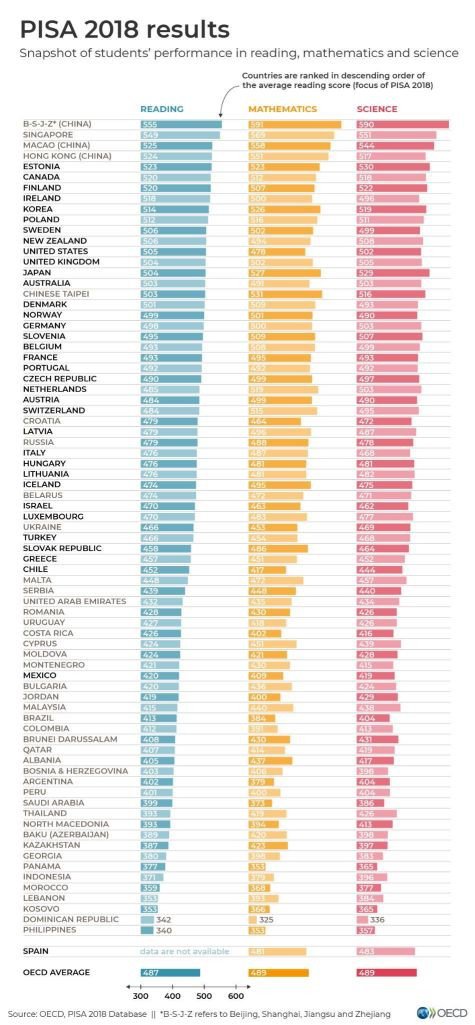* Photo: meb.gov.tr
Click to read the article in Turkish / Kurdish
The Organisation for Economic Co-operation and Development (OECD) shared the results of its triennial Programme for International Student Assessment (PISA) for 2018 today (December 3).
Over 600,000 students at the age of 15 from 79 countries and economies participated in the programme on behalf of 32 million students.
According to the results, though there is a relative point-based increase in the students' performance in reading, mathematics and science in Turkey, the country has still fallen behind the OECD average in these areas.

6 thousand 890 15-year-old students from 186 different schools participated in the programme, representing 73 percent of their peers in Turkey.
According to the results, the students from China have scored the best in the ranking. China has been followed by Singapore and Macao Special Administrative Region of the People's Republic of China.
The results have shown that the highest increase in mathematics and science performances has been measured among the students from Turkey.
Of the 37 OECD countries participating in the PISA, Turkey has ranked 31st, scoring better than Slovakia, Chile, Mexico, Colombia and Spain. In the 2015 report, Turkey ranked 50th among 72 countries in total.
In reading, Turkey has ranked 40th among 77 countries with 466 points. The OECD average in reading is 487 points.
In mathematics, Turkey has ranked 42nd among 78 countries with 454 points. The OECD average in maths is 489 points.
Lastly, in science, Turkey has ranked 38th among 78 countries with 468 points. The OECD average in science is 489 points.
What is PISA?
PISA is the OECD's Programme for International Student Assessment. PISA measures 15-year-olds' ability to use their reading, mathematics and science knowledge and skills to meet real-life challenges.
It was first performed in 2000 and then repeated every three years. Its aim is to provide comparable data with a view to enabling countries to improve their education policies and outcomes. It measures problem solving and cognition.
As indicated by the OECD itself in its 2018 report, "The OECD countries that initiated PISA tried to make PISA different from traditional assessments in other ways too. In a world that rewards individuals increasingly not just for what they know, but for what they can do with what they know, PISA goes beyond assessing whether students can reproduce what they have learned in school. To do well in PISA, students have to be able to extrapolate from what they know, think across the boundaries of subject-matter disciplines, apply their knowledge creatively in novel situations and demonstrate effective learning strategies." (AÖ/SD)
Click here for the full PISA 2018




